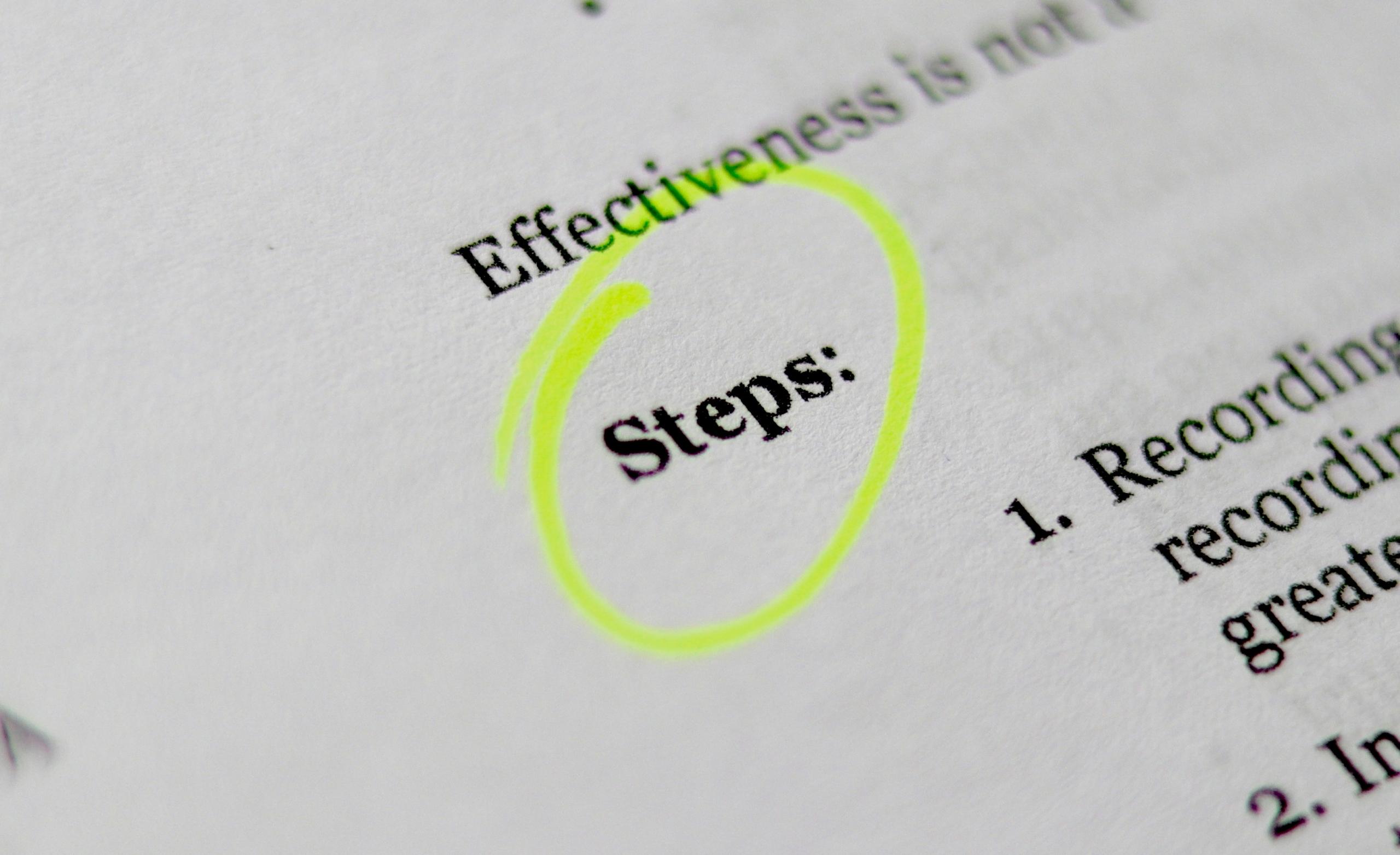Chapters
- 01. 1. Anxiety and Nerves
- 02. 2. Lack of Effective Revision Strategies
- 03. 3. Time Management Issues
- 04. 4. Procrastination
- 05. 5. Poor Understanding
- 06. 6. Distractions
- 07. 7. Poor test-taking skills
- 08. 8. Not reading the question
- 09. 9. Laziness
- 10. 10. Health-related Issues
- 11. 11. External Pressure
- 12. 12. Overconfidence
- 13. 13. Insufficient Preparation
- 14. 14. Overdependence on Memorisation
- 15. 15. Poor communication and lack of clarity in your responses
- 16. 16. Poor presentation skills
- 17. 17. Too many absences
- 18. 18. Burnout & Neglecting Self-care
- 19. 19. Limited Communication with Teachers
- 20. 20. Not making use of revision resources
- 21. 21. Reviewing the Wrong Material
- 22. 22. Low Self-Esteem
- 23. 23. Not completing your coursework
- 24. 24. No Interest in the subject
Examinations play such a huge role in our lives, from deciding whether we get into our chosen university to studying our dream subject. From confirming the level of our knowledge in a specific field to determining a job role. Nobody wants to fail a test - those results really count for students! As such, it is entirely reasonable to feel nervous as a student ahead of the exam period.
So let’s say you bombed an important test in school. What happens? What if you were the only student in your school year to not pass? Why do I fail even when I study? These are all things that might race through your head ahead of the exam period.
But, what if there was a way that you could predict the different ways in which you could go wrong during an exam? What if you could make them right? And along the way, learn good techniques to help you pass and ace your tests. Here, we review the top 24 reasons students fail exams and some easy tips and solutions to examination failure.

1. Anxiety and Nerves
The number one reason that students do poorly in examinations is due to exam-related stress. Given the amount of pressure students are under, be it to perform well in entrance exams for higher education or achieve top grades to meet their parents’ expectations, it’s no wonder that anxiety and stress have a major impact on exam performance. Anxiety can significantly impact performance, making it crucial to adopt stress-management techniques.
Solution: Turning Nerves into Excitement
Anxiety and nerves are part and parcel of life, especially when things are important to us.If you can somehow turn any negative feelings into positive ones, then you could ultimately change the course of your exam, and possibly your life. Some experts suggest preparing for an examination by releasing any tension from your body. You might do some breathing exercises and/or meditation, or you could rhythmically clench and relax your fists which is said to calm your nerves. Remember that these tricks apply when waiting for exam results, too. So if you remain positive, your body will follow suit and will allow you to reflect your truest ability!
2. Lack of Effective Revision Strategies
Another one of the main causes for student failure in examinations is that many students jump into a test without thinking strategically: what points they must cover, what techniques they should use, how long should be spent on each question etc.
Without purposeful study methods, many struggle to retain information, emphasising the requirement for strategic learning approaches.
Solution: Employ effective revision techniques
When revising, try out different techniques such as active reading and summarising. Be sure to jot down key points (dates, concepts, formulas etc) before you start responding and try out mnemonic devices to optimise your revision and retain key information.

3. Time Management Issues
Time management is another major issue for test-takers, particularly under high-pressure circumstances. We’ve all been in a situation where we’ve spent 45 minutes on the first question of an hour-long examination and are left scrambling to finish in the last few minutes.
Poor time management during exam preparation can lead to inadequate coverage of material. That’s why effective revision allocation is crucial.
Tip: Practice effective time allocation
The first thing you should do is to allocate your time based on the mark scheme. If you know that the first question is worth 50% of points, then you should allocate half of your time to it. It sounds simple but it can make all the difference. Also remember you'll need to prepare an outline or plan, particularly for essay-based subjects such as English and history.
4. Procrastination
Even the best of us fall victim to procrastination, particularly when it comes to things that we avoid doing - chores, revision etc. But when procrastination goes so far as to hinder performance, or worse, lead to poor performance, then you need to get a handle on it!
Solution: Set SMART Goals
Stick to SMART goals (Specific, Measurable, Achievable, Relevant and Time-bound). This will create a sense of urgency. By breaking down tasks into smaller and more specific steps, can help to make your exam prep seem less overwhelming and more manageable.
5. Poor Understanding
Poor comprehension of subject material is another reason for failure - whether it’s in the French subjunctive tense or organic chemistry. Poor understanding of the basic concepts taught throughout the course is likely to be reflected in poor results.
Tip: Foster continuous learning and good reading habits
Rather than struggling to learn all your syllabus just days before the exam, make an effort to learn and read consistently throughout the course. Allocate a couple of hours each week to revisit the concepts you’ve learned in class and don’t be afraid to ask if there’s anything you didn’t quite understand and would like to revisit. This consistent and proactive approach will pay off when you feel all the more prepared and confident going in!
6. Distractions
Common distractions, from smartphones to the latest Netflix series can prevent students from doing well in exams.
Tip: Create a dedicated study environment
In order to prevent common distractions from derailing your review sessions, create a dedicated study environment - in a quiet place, with all the topics you need, and without your smartphone! You may also want to try productivity apps to force you to stay focused for those who require a little extra support. Practising meditation regularly also works wonders for focusing the mind and staying focused.
7. Poor test-taking skills
Inadequate test-taking skills, characterised by issues like rushing through an examination, skipping your plan or panicking and forgetting everything you’ve revised, can significantly undermine academic performance.
Solution: Practice with timed mock exams
Practising under the pressure of time constraints is one of the most valuable techniques in successful preparation. Not only will it allow you to review the concepts and the kinds of questions asked; but also to practice refining your time management skills and practising under simulated test conditions - without any revision aids or your laptop!
8. Not reading the question
A very common mistake that many pupils make when writing a test, is not reading (and therefore, responding) to the question.
Tip: Circle key concepts before responding to the question
A simple and easy step to avoid making this mistake is to take a couple of minutes at the beginning of a quiz to read the question and circle some of the key points and concepts, as well as to look at the number of points allocated to strategically plan out your response.

9. Laziness
We’ve all been there… After a long day at school, the last thing you want to do is get home and start studying for tomorrow’s maths quiz. Along with procrastination, laziness can prevent individuals from adequately preparing and missing their desired grades.
Tip: Create a study schedule
Overcome laziness by scheduling dedicated study with plenty of breaks. By allocating specific periods for focused revision sessions, this will create consistency in your routine and allow you to balance dedicated revision with breaks.
10. Health-related Issues
Health problems from poor diet and deficiencies to lack of sleep can have a seriously negative impact on academic performance.
Tip: Prioritise your health
Ensure that you have a balanced diet, sufficient sleep and regular physical exercise, all of which can mitigate stress and maintain your overall well-being. Revision shouldn't be an excuse to get out of PE class. If you’re dedicated to achieving good grades in your examinations, then good health is essential to optimise your performance!
11. External Pressure
From expectations placed on us by parents and teachers to the societal pressures to succeed, there are a number of external factors that can cause even the most prepared students to underperform.
Solution: Establish Clear Boundaries and Communication
Clearly communicate your capabilities and limitations to those around you, and prioritise your mental well-being by setting realistic goals and seeking support.

12. Overconfidence
While a lack of confidence and low self esteem can lead to underperformance, so too can overconfidence. Many pupils underestimate the complexity of exams or not anticipating what they may face in exam situations, leading them to neglect thorough preparation.
Tip: Maintain a balanced mindset
While it’s important to be confident in yourself and your abilities, continue to foster confidence through consistent practice and regular self-assessment. Don’t hesitate to ask for honest feedback from peers, parents, teachers and tutors.
13. Insufficient Preparation
This problem is very simple - some people may simply fail to adequately prepare for assessments by not covering the syllabus and not getting enough practice. It means that they haven’t been able to fully grasp what they’ve been taught.
Tip: Plan ahead and start preparing ahead of time
Your study plan should outline key topics, concepts and skills that you should know to make sure you’re making full use of your revision. This should improve your preparation and boost your confidence!
14. Overdependence on Memorisation
Relying solely on rote memory can be problematic in exams. Bear in mind that teachers will often adjust the wording in a quiz to evaluate your true understanding of a topic - not just whether you’re able to regurgitate concepts you’ve memorised word for word.
Solution: Focus on understanding the material
Aim to strike a balance between memorising concepts and fully understanding concepts that you’re reiewing. Beyond active recall, try out problem-solving exercises to reinforce your comprehension. Another tried and tested technique is to try to explain the concept to a friend or family remember, which is another way to gauge how well you truly understand the topic.
15. Poor communication and lack of clarity in your responses
The inability to get your point across in a clear and concise manner can make it difficult for examiners to correct your work, even if you’re making valid and relevant points.
Tip: Develop clear writing skills
This is where clear and concise writing is crucial. Practice getting your point across as clearly as possible and avoid adding too much unnecessary waffle to your arguments or discussions. Don’t hesitate to ask for feedback from English teachers who can support you in honing this skill.
16. Poor presentation skills
Just as unclear writing can hinder success, and so too can illegible handwriting and disorganised responses with loads of mistakes
Tip: Always proofread your work!
During your revision, practice legible and organised handwriting. Structure your responses and plan your response before beginning to write. Make sure that you’re proofreading your responses to check for clarity and silly mistakes.
17. Too many absences
Irregular attendance compromises exposure to critical classroom discussions and essential learning opportunities. Also, don't forget to set your alarm; you don't want to be late for school or on test day.
Tip: Aim for consistent attendance
Try to keep your attendance record up as much as possible as this will make life a lot easier when it comes to preparing for exams. If you do have to be absent, be proactive about communicating with teachers and classmates to catch up on anything you might have missed as quickly as possible. -
18. Burnout & Neglecting Self-care
Neglecting personal care can result in burnout, reducing overall well-being and hindering the ability to approach tests with a clear and focused mindset.
Tip: Prioritise your mental health
Scheduling breaks, incorporating leisure activities, and maintaining a healthy work-life balance are critical. Taking care of mental and physical health enhances resilience and concentration, contributing to better performance.

19. Limited Communication with Teachers
Limited communication with teachers impedes your ability to seek clarification, address concerns, and receive guidance for successful preparation.
Solution: Foster open communication
Actively participate in class discussions, attend office hours, and seek feedback regularly on assignments. Establishing a connection with your teachers and lecturers can create a supportive learning environment that will allow you to thrive.
20. Not making use of revision resources
Not making use of all available resources from textbooks to classroom notes and mocks can mean that you’re not fully prepared for what’s to come. Make sure you’ve
Solution: Diversify your revision resources
Maximise your resources by exploring various learning materials, and participating in revision groups and tutoring sessions. Diversifying your approach to revision helps to ensure a more well-rounded understanding and comprehensive readiness for exams.
21. Reviewing the Wrong Material
One of the biggest roadblocks when preparing for a big test is revising the wrong material or the wrong part of the syllabus, which can lead to wasted efforts and worst of all, frustration!
Tip: Work on targeted exam prep
The first thing you can do before preparing for an examination is to decide what to cover your revision. Review the syllabus and consult with your teacher and tutor to align your study materials with expectations. By taking a proactive approach this can optimise your efforts!
22. Low Self-Esteem
Having low self-esteem can not only limit your performance but it can also be incredibly taxing on your mental health.
Solution: Nurture self-confidence & celebrate your achievements
Counter low self-esteem by practising compassion, setting realistic goals, and celebrating achievements. Seeking support from peers, mentors, or counselling services can also provide valuable assistance in building a more positive self-image and fostering resilience in the face of challenges.
23. Not completing your coursework
Inconsistent completion of homework can lead to gaps in understanding and hinder the reinforcement of learned material.
Tip: Be consistent with your homework
Establish a consistent routine, break down tasks into manageable sections, and seek assistance. This approach ensures continuous reinforcement of knowledge and contributes to a thorough preparation process.
24. No Interest in the subject
Indifference to the subject can diminish motivation, making it challenging to sustain engagement during your revision and pass an exam.

Tip: Cultivate your curiosity!
Cultivate interest by exploring real-world applications of the subject, connecting it to personal goals, or incorporating interactive methods. Finding relevance what you're learning rekindles motivation and makes your experience more enjoyable.
Another way to keep things fun and interesting is to revise with friends or in a group. You can encourage each other, share ideas and learn techniques for understanding and remembering things. Ask parents or older friends for support. There's never a bad result when you're sharing knowledge with friends.
In conclusion, good quality revision is vital to avoiding exam failure and the result and success you want. When it comes to the test day - remember the three 'w's or WWW we've mentioned - watch, weigh then write. Good luck!












It is really hard for me to stay focused
Thanks i appreciate
Thanks i will practice these and hopefully pass my exams in November 😊
I also have exam in November
Thanks Joshua 😊.study for exams
I really loved the suggestion and was really helpful
And I even used it to answer my assignments and my result has improved❣️❣️❣️❣️
thanks ‘ appreciatable
Thanks i will practice these and hopefully pass my exams in November 😊
You will pass your exams.
Thanks Joshua 😊
It’s very helpful
Thanks 😊
Thank you, i really appropriate
I can’t say I didn’t learn something from here, learn many things which is even affecting me but don’t have the solution but with this information i’m really happy for it, THANK YOU 🙏
Thanks so much I wish my parents would stop criticizing me and just help me.
It’s an incredible peace of advice for high school learners preparing for an exam.
you are truly amazing 😊.
and I will practice these tips ❤
Thank you for making me realize that failing a test doesn’t mean that it is over .
I really like these tips💯
Sometimes I fail to concentrate when I am studying.
Thanks for the feedback! :)
I have liked the texts given about the causes of poor performance in exams. Thank you.
My exam in a week time, wished I saw this earlier tho😩 nevertheless, I found this helpful ❤️ Thank you ☺️
So glad to hear that you found this helpful! Wishing you all the best for your exams!❤️